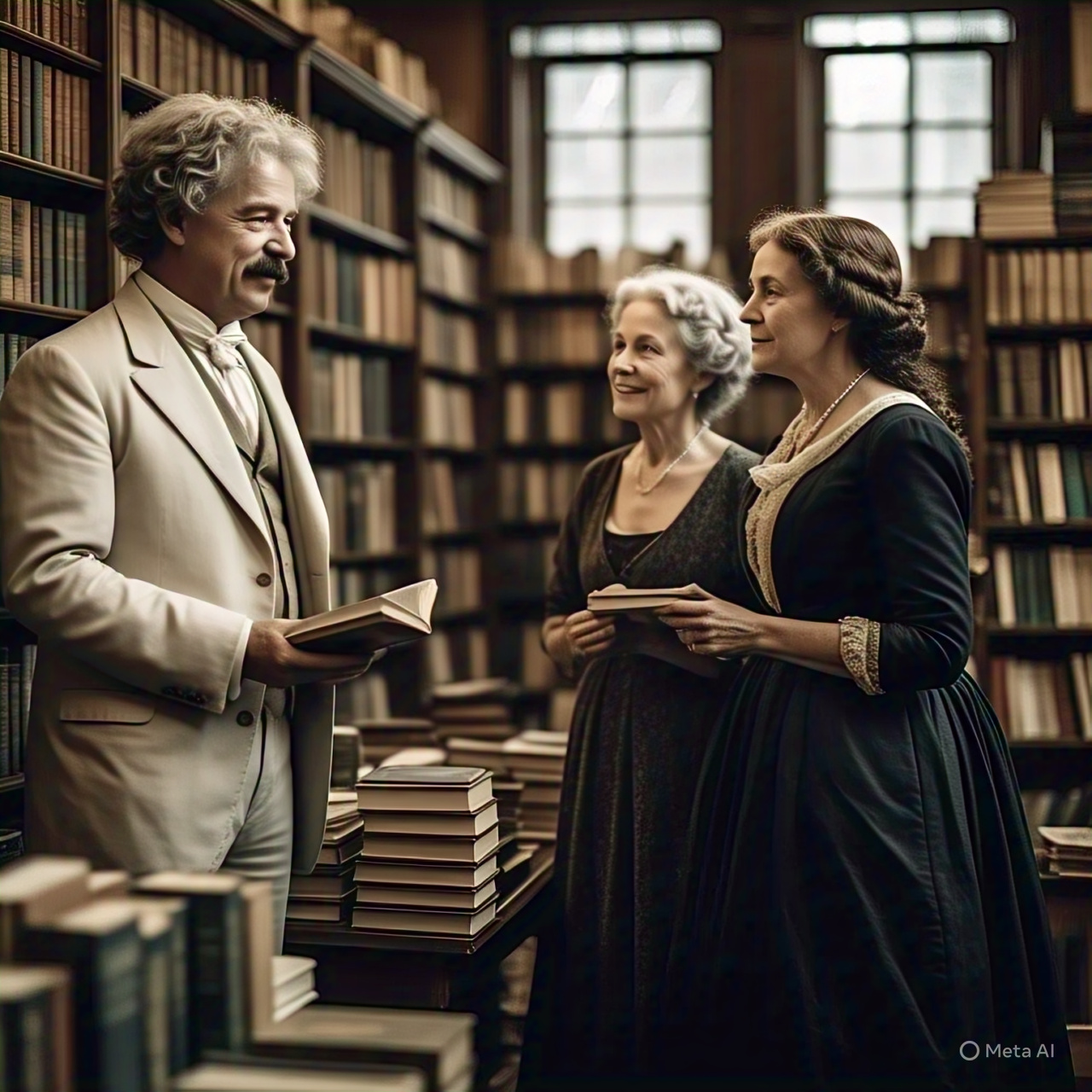Massachusetts 1866
“It is a curious thing, living with a ghost who refuses to be properly dead. Miss Austen rises each morning at precisely the same hour, makes tea as though it were a sacrament, and hums a tune I suspect is designed to annoy me. Our walks into town are an exercise in restraint—for while she nods politely to passersby, I have inherited an American tendency to greet them outright, as though we are all in one large, unwieldy family. Yesterday, she chastised me for greeting a man with ‘Mornin’ to you, sir!’ and told me I was turning into a minister’s wife from New Hampshire.
We walk in silence until she forgets to be cross, and I forget to be foreign. There is something rather democratic about trudging through mud together.“
Jane burst into laughter, loud and clear. “A minister’s wife from New Hampshire! Charlotte, you must publish this.”
“Never.”
“Then I shall plagiarize you.”
Charlotte smiled, despite herself. “Only if you promise to leave out the part where I said ‘mornin’.”
Outside, snow fell gently on the silent trees. Inside, two great minds sat warmed by fire and prose, their laughter rising like steam from the teacups between them
The next morning, Jane and Charlotte bundled themselves in cloaks and boots, setting off on foot to the center of town. The snow had turned slushy in places, making their progress a cautious shuffle. Their errand was simple—order supplies to be delivered to the cottage. Flour, lamp oil, and a fresh tin of tea.
After placing their order, Jane turned her gaze down the lane. “Shall we visit the bookshop? It’s warmer there than most churches.”
Charlotte nodded. “So long as no one tries to recommend me a pamphlet on transcendentalism.”
They walked along the boardwalk and into the bookshop, the little bell above the door ringing.
And there, in the far corner, flipping through a stack of almanacs, stood Samuel Clemens. He looked up as the door creaked.
Recognition flickered across his face. “Well, if it isn’t the English widow of the Moors—and her ghostly roommate.”
Charlotte flushed. Jane burst into delighted laughter. The shopkeeper, bewildered, simply adjusted his spectacles.
“Mr. Clemens,” Jane said, with a half-curtsey. “We feared your wit had fled to warmer climates.”
“It tried,” he replied, closing the almanac, “but was thwarted by poor train schedules and a cursed fondness for New England bookstores.”
Charlotte folded her arms. “You’re following us.”
“Only in the literary sense,” Clemens said with a grin. “Though I might ask—have either of you considered a co-authored memoir? Seems to me the world could use the tale of a Yorkshire exile and a Regency ghost trudging through the democratic mud.”
Jane raised a brow. “Only if you agree to write the introduction.”
“On one condition,” he said. “That I’m allowed to compare your parlor to a tugboat and your tea to cannon smoke.”
Charlotte rolled her eyes. Jane just laughed again.
In the bookshop’s golden afternoon light, the three of them stood among the shelves—writers from different worlds, arguing, teasing, and, somehow, becoming something perilously close to friends.

